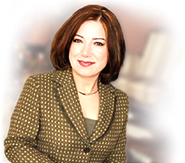Blog
Fixed vs Variable Rate Mortgages
2015-12-02 10:34:19 Posted By Jila RezaiHere is some information about each option to help you make the right choice.
Choosing between a fixed or variable rate mortgage is not a simple decision; you can choose to go with a stable, fixed rate mortgage. Or, you may feel more comfortable with the risks and potential rewards of a variable rate mortgage. For the "best of both worlds," you might decide on a mortgage that combines both interest types. With fixed rates at historic lows, this makes the question even trickier.Fixed RateA fixed rate mortgage offers the security of locking in your interest for the entire term of your mortgage. This means you'll know exactly how much you will be paying each month. A fixed rate mortgage offers you the security of knowing exactly how much principal and interest you will be paying on your mortgage during the term you selected. The mortgage is closed. You are locked in and a penalty may be charged if the mortgage is paid in full prior to the end of the term. Fixed rate mortgages do however, allow you to prepay a portion of the mortgage annually and increase your monthly payments at no additional charge.A fixed rate mortgage is best for you if...- You enjoy the security of a rate that is guaranteed not to change for the term of the mortgage and are willing to pay a slightly higher rate for that security
- You prefer the peace of mind of predictable mortgage payments and amortization that are guaranteed not to change during the term of your mortgage
Variable/Adjustable Rate MortgageWith a variable rate mortgage regular mortgage payments are set for the term, even though interest rates may fluctuate during that time. When rates go down, an increased amount of your payment goes to pay the principal. With more going into your principal, the less interest you pay, and the faster the mortgage is paid off. When rates go up, you'll see an increase in the portion of payment that goes into paying the interest. With less going into the principal, the amortization period is extended. Typically variable rates include some of the lowest rates available. Variable rates can be converted to a fixed rate mortgage, with a term equal to or greater than the remaining term, at no cost. The mortgage is closed. The maximum penalty changed to pay it off prior to the end of the term is 3 months' interest.A variable rate mortgage is best for you if...- You are comfortable with rate fluctuations to gain possible long term interest savings
- You have the flexibility to accept possible increases in your amortization should the interest rate increase
- Regular mortgage payments are set for the term, even though interest rates may fluctuate during that time
Split Rate MortgageThe best of both worlds - the savings of a variable rate mortgage with the security of a fixed rate. If you are unsure about your level of risk tolerance for rate fluctuations, choosing both allows you to take advantage of the lower interest rate of a variable rate mortgage and the security of a fixed rate mortgage.A split rate mortgage is best for you if...- You are concerned about future interest rates and want to enjoy the security of a fixed rate, while wanting the potential long term savings of a variable rate mortgage
- You have sufficient equity in your home that default insurance is not required
- You want the best of both worlds
If you would like to more information please contact me at 604-773-3599. If I can assist with your real estate needs, I am always happy to help.Source: Gibbard Group Financial



